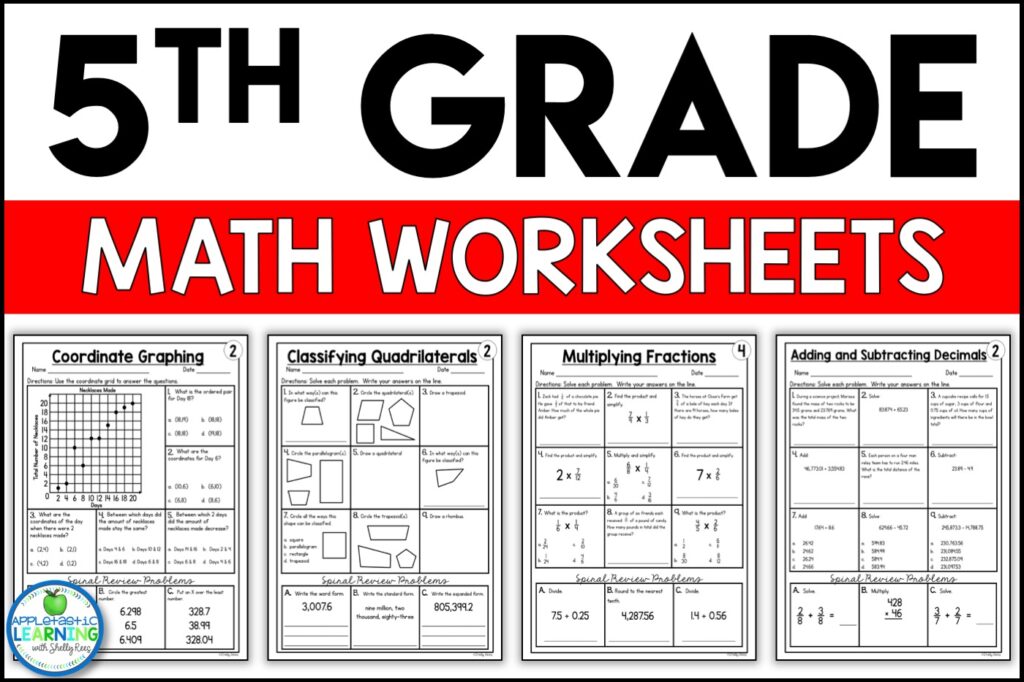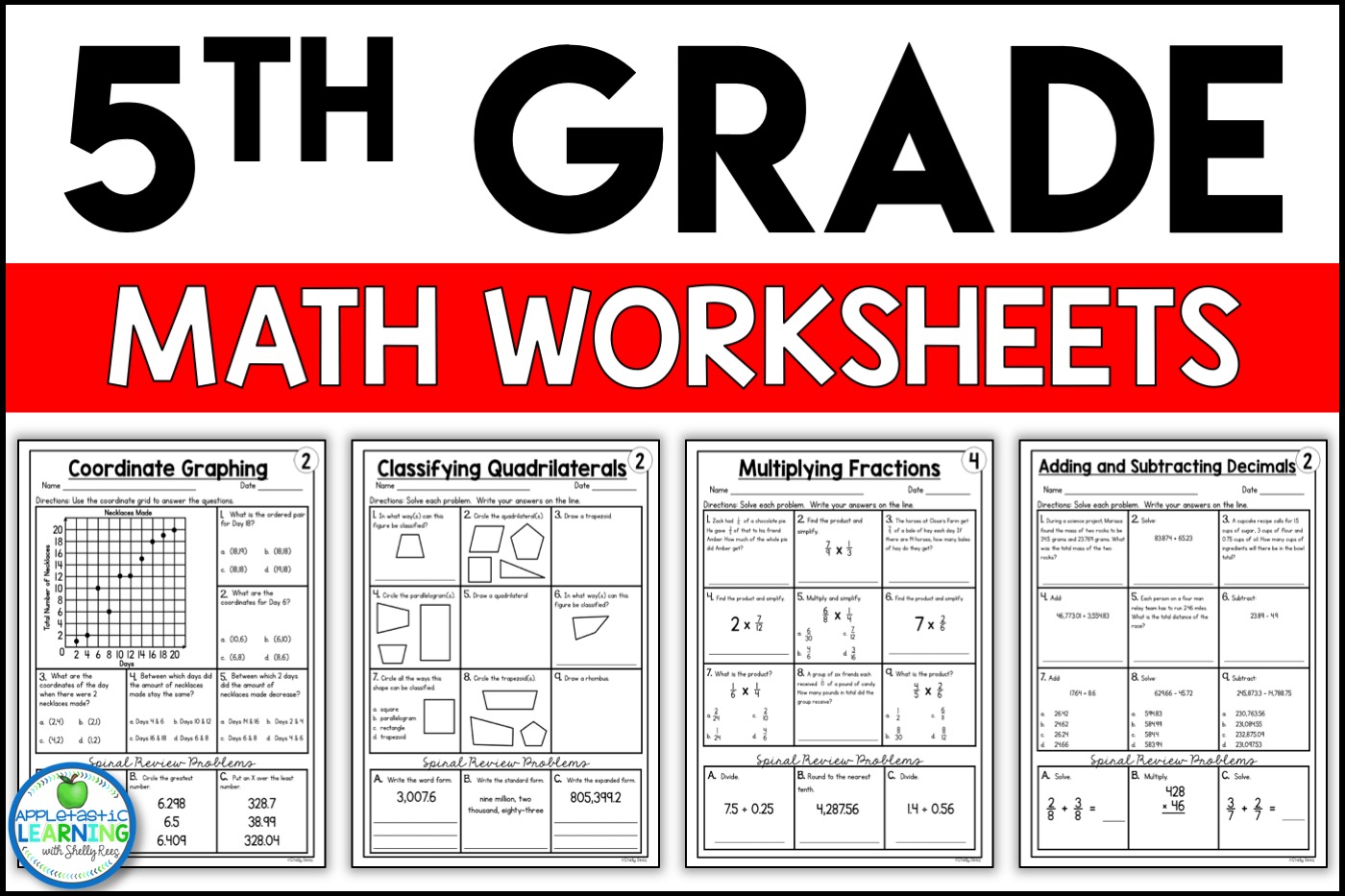
Navigating Fifth Grade: A Comprehensive Guide for Students and Parents
Fifth grade marks a significant transition in a child’s educational journey. It’s a year of increased academic rigor, social development, and personal growth. This article serves as a comprehensive guide for both students and parents, offering insights into what to expect, how to succeed, and strategies for making the most of this pivotal year. Understanding the challenges and opportunities of fifth grade is crucial for ensuring a positive and productive experience. Many consider fifth grade the final year of elementary school, making it a bridge to the more independent learning environment of middle school. Therefore, preparing a student for fifth grade is critical to their future academic success.
Academic Expectations in Fifth Grade
The academic curriculum in fifth grade typically covers a wide range of subjects, including reading, writing, mathematics, science, and social studies. Each subject presents unique challenges and opportunities for learning.
Reading and Language Arts
In reading, fifth graders are expected to tackle more complex texts, analyze literary elements such as plot, character, and theme, and draw inferences from what they read. They will also work on expanding their vocabulary and improving their reading comprehension skills. Writing assignments become more sophisticated, requiring students to develop essays, research reports, and creative writing pieces. Grammar, punctuation, and sentence structure are emphasized to ensure clear and effective communication. Many curriculums include novel studies, encouraging students to engage deeply with longer works of fiction. [See also: The Importance of Reading Comprehension]
Mathematics
Fifth grade mathematics focuses on building a strong foundation in arithmetic and introducing more advanced concepts. Students will delve into fractions, decimals, and percentages, learning how to perform operations with these numbers. They will also explore geometry, learning about shapes, angles, and measurement. Problem-solving skills are heavily emphasized, requiring students to apply their mathematical knowledge to real-world scenarios. A solid understanding of multiplication and division is essential for success in fifth grade math. The curriculum often introduces algebraic thinking through patterns and relationships. Fifth grade is a critical time to ensure that any gaps in mathematical understanding are addressed.
Science
The science curriculum in fifth grade typically covers topics such as life science, earth science, and physical science. Students may learn about ecosystems, the human body, the solar system, and the properties of matter. Hands-on experiments and investigations are often incorporated to make learning more engaging and interactive. The scientific method is also a key focus, teaching students how to formulate hypotheses, conduct experiments, and analyze data. Critical thinking and observation skills are fostered through these activities. Understanding scientific concepts is crucial for developing a well-rounded understanding of the world. Many fifth grade science programs incorporate field trips to museums or nature centers.
Social Studies
Fifth grade social studies often focuses on American history, civics, and geography. Students may learn about the early explorers, the American Revolution, the Civil War, and the development of the United States government. They will also study different regions of the United States and their unique characteristics. Map reading skills, research skills, and critical thinking skills are developed through social studies assignments. Understanding the historical context of current events is an important goal of the curriculum. The study of social studies helps fifth graders become informed and engaged citizens. Learning about different cultures and perspectives is also often included in the social studies curriculum.
Social and Emotional Development in Fifth Grade
In addition to academic growth, fifth grade is also a time of significant social and emotional development. Students are navigating more complex social relationships, developing their sense of identity, and learning how to manage their emotions. Peer interactions become increasingly important, and students may experience pressure to fit in or conform to social norms.
Navigating Peer Relationships
Fifth graders are often highly attuned to their peers’ opinions and behaviors. They may be concerned about popularity, friendships, and social status. It’s important for parents and educators to provide guidance and support in navigating these relationships. Teaching students how to communicate effectively, resolve conflicts peacefully, and stand up for themselves are crucial skills for this age group. Encouraging empathy and understanding can help foster positive peer relationships. The development of strong social skills is essential for success in both academic and personal life. Fifth grade can be a time of increased social anxiety for some students. [See also: Building Healthy Friendships]
Developing Self-Esteem
Fifth grade is a time when students are developing their sense of self and their self-esteem. It’s important to provide opportunities for them to succeed and to recognize their strengths. Encouraging them to participate in extracurricular activities, pursue their interests, and set achievable goals can help boost their confidence. Providing positive feedback and constructive criticism can also help them develop a healthy self-image. Celebrating their accomplishments, both big and small, is essential for building self-esteem. Fifth grade is a critical time to address any issues that may be affecting a student’s self-worth.
Managing Emotions
Fifth graders are learning how to manage their emotions and cope with stress. It’s important to teach them strategies for dealing with frustration, anger, and anxiety. Encouraging them to talk about their feelings, practice relaxation techniques, and engage in physical activity can help them regulate their emotions. Providing a safe and supportive environment where they feel comfortable expressing themselves is crucial. The ability to manage emotions is a key life skill that will benefit them throughout their lives. Fifth grade can be a time of increased stress due to academic demands and social pressures. Teaching emotional regulation skills is important for fifth grade students.
Tips for Success in Fifth Grade
Here are some practical tips for helping fifth graders succeed academically, socially, and emotionally:
- Establish a Routine: Create a consistent daily routine that includes time for homework, studying, and extracurricular activities.
- Provide a Study Space: Designate a quiet and comfortable space where your child can focus on their schoolwork.
- Encourage Reading: Make reading a regular habit by providing access to a variety of books and magazines.
- Stay Connected: Communicate regularly with your child’s teacher to stay informed about their progress and any challenges they may be facing.
- Promote Independence: Encourage your child to take responsibility for their own learning and to develop problem-solving skills.
- Support Extracurricular Activities: Encourage your child to participate in activities that interest them, such as sports, music, or art.
- Foster Open Communication: Create a safe and supportive environment where your child feels comfortable talking about their feelings and concerns.
- Monitor Screen Time: Set limits on screen time and encourage your child to engage in other activities, such as outdoor play and creative pursuits.
- Teach Organizational Skills: Help your child develop organizational skills, such as using a planner, keeping their materials organized, and prioritizing tasks.
- Encourage Goal Setting: Help your child set achievable goals and celebrate their accomplishments.
Addressing Challenges in Fifth Grade
While fifth grade can be a positive and rewarding experience, it’s also important to be aware of potential challenges that students may face. These challenges can range from academic difficulties to social and emotional struggles.
Academic Difficulties
Some fifth graders may struggle with the increased academic rigor of the curriculum. They may have difficulty with reading comprehension, writing assignments, or mathematical concepts. It’s important to identify these difficulties early on and provide appropriate support. This may include tutoring, extra help from the teacher, or modifications to the curriculum. Addressing academic challenges promptly can prevent them from escalating and affecting a student’s overall confidence. Working with the school to develop an individualized education plan (IEP) may be necessary for some students. Fifth grade is a pivotal time to address any learning gaps.
Social and Emotional Struggles
Fifth graders may also experience social and emotional struggles, such as bullying, peer pressure, and anxiety. It’s important to create a supportive environment where they feel comfortable talking about these issues. Teaching them coping strategies, conflict resolution skills, and assertiveness can help them navigate these challenges. Parents and educators should also be vigilant about identifying and addressing any signs of bullying or social isolation. Seeking professional help from a counselor or therapist may be necessary in some cases. Many fifth graders experience anxiety about moving to middle school. [See also: Dealing with Bullying]
The Role of Parents in Fifth Grade Success
Parents play a crucial role in their child’s success in fifth grade. By providing support, encouragement, and guidance, parents can help their children thrive academically, socially, and emotionally.
Staying Involved
Staying involved in your child’s education is essential. This includes attending school events, communicating with the teacher, and helping with homework. By staying informed about your child’s progress and any challenges they may be facing, you can provide targeted support and interventions. Volunteering in the classroom or participating in school committees are also great ways to stay involved. Parental involvement has been shown to have a significant positive impact on student achievement. Supporting a fifth grader is a team effort between the parents and the school.
Providing Support
Providing emotional support is just as important as academic support. Let your child know that you believe in them and that you are there for them, no matter what. Encourage them to pursue their interests, celebrate their accomplishments, and help them learn from their mistakes. Creating a positive and supportive home environment can help them build confidence and resilience. Fifth grade is a time when students need extra encouragement and support. The transition to fifth grade can be challenging, so parental support is crucial.
Encouraging Independence
While providing support is important, it’s also important to encourage your child to develop independence. Encourage them to take responsibility for their own learning, to set goals, and to solve problems on their own. This will help them develop the skills and confidence they need to succeed in middle school and beyond. Fifth grade is a time when students are preparing for greater independence. Fostering independence in fifth graders is a key step towards their future success. Preparing a fifth grader for independence is an ongoing process.
Conclusion
Fifth grade is a pivotal year in a child’s educational journey. By understanding the academic expectations, social and emotional challenges, and strategies for success, parents and educators can help fifth graders thrive. With the right support and guidance, fifth graders can develop the skills, knowledge, and confidence they need to succeed in middle school and beyond. This comprehensive guide provides a framework for navigating fifth grade and making the most of this important year. Preparing a student for fifth grade is an investment in their future success. The challenges of fifth grade can be overcome with the right support and strategies. The fifth grade experience is a stepping stone to future academic achievements. By working together, parents and educators can help fifth graders reach their full potential.

